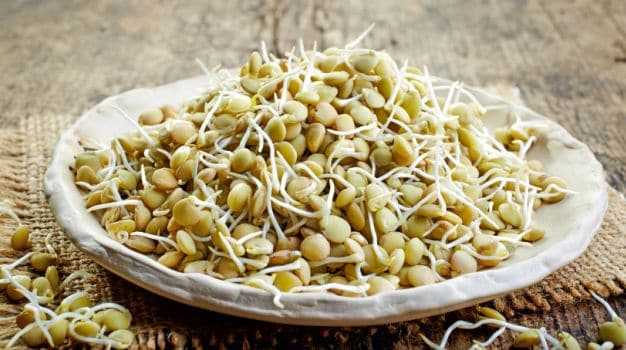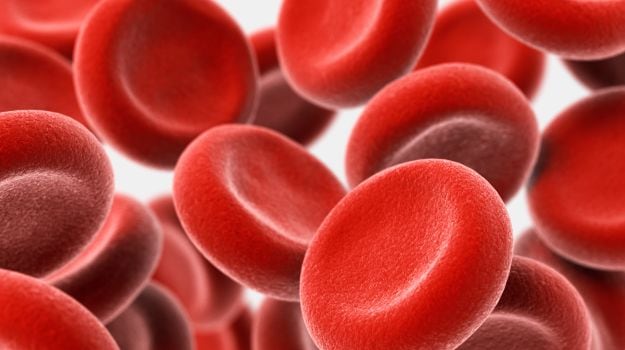Do you remember those days when you would wait patiently for chickpeas and moong dal soaked in water to slit open into tiny tail-like structures? Wasn’t it fascinating as a kid? The process is called sprouting and sprouts can be a super healthy addition to your daily meals. While you have a variety of legumes to choose from, there is a technique to get it right. Sprouting may look like an easy process but it needs the right technique and precision to extract all the goodness. Learn all about sprouting the right way and the many benefits of the process.
What is sprouting?
Sprouting is basically a process where seeds and legumes are germinated and eventually eaten raw. When seeds are soaked in water for a certain period of time, they germinate, causing their outer layers to tear open and allowing a young shoot to blossom. Sprouted grains, legumes and beans are believed to be very nutritious and healthy. Grains are soaked in water so as to soften their outer membranes allowing them to sprout.
(Also read: 10 Best Sprout Recipes)

Sprouting is basically a process where seeds and legumes are germinated
Why sprouting is healthy
Sprouting tends to enhance the nutritional value of the grains, legumes or beans. These contain certain anti-nutrients including phytic acid which locks up important minerals. It also inhibits our digestive enzymes that can cause indigestion and intestinal gas. Nutritionist Sheela Sehrawat from the Diet Clinic in New Delhi, explains, “Sprouting increases the nutritive value of the ingredients and provides better digestion. The young sprouts have 10 to 100 times glucoraphanin which is an enzyme that protects the body from cancer causing agents. Further, it provides antioxidants and increases the activity of chlorophyll which helps in detoxifying your body by boosting the oxygen levels in the body.”
Benefits of Sprouting
Sprouting increases the level of minerals and vitamins including vitamin D in the ingredients. In the book, Diet & Nutrition – A Holistic Approach, author Rudolph Ballentine explains that most of the gas producing starches can be eliminated by sprouting. Sprouting also increases the protein content, and shortens the cooking time of legumes. During the process of sprouting, some of the stored starch in the legume is used up for forming the tiny leaves and rootlets and in manufacturing vitamin C. Here are some health benefits that will convince you to sprout more often.
1. Helps in digestion
Sprouts contain an unusually high content of living enzymes. These enzymes further help in boosting your metabolic processes and improve chemical reactions within the body, specifically when it comes to digestion. Enzymes help break down the food effectively and enhance the absorption of nutrients by the digestive tract. Sprouts also have a lot of dietary fiber which regulates digestion.

Sprouts contain an unusually high content of living enzymes
2. Boosts blood circulation
Sprouts help in boosting your blood circulation by maintaining your red blood cell count with significant amounts of iron and copper. This further helps in supplying oxygen to various organs and cells to optimize their performance.

Sprouts help in increasing the blood circulation
3. Helps in weight loss
Sprouts are one the best foods to help lose weight. They are high in nutrients but have negligible calories which means that you can consume sprouts without worrying about the weighing scale. Furthermore, sprouts contain a high amount of fiber that makes you feel full for a longer period of time. It also inhibits the release of ghrelin, a hunger hormone that indicates our brain to eat more.

Sprouts are high in nutrients but have negligible calories
4. Builds your immune system
Sprouts have a high vitamin C content that makes it a powerful stimulant for the white blood cells in the body to fight off infections and diseases and thus, building your immunity system. It also has abundant vitamin A.

Sprouts have a high vitamin C content that makes it a powerful stimulant
5. Improves eye sight
Due to the presence of vitamin A, sprouts also help in improving your vision and eye sight. They also have antioxidant agents to protect the cells of the eyes from free radicals.

Due to the presence of vitamin A, sprouts also help in improving your vision
6. Heart friendly
Sprouts have omega-3 fatty acids which help in boosting good cholesterol (HDL) levels and reduce the amount of harmful cholesterol in your blood vessels and arteries. Omega-3 fatty acids are also anti-inflammatory in nature, so they help in reducing the excessive stress on your cardiovascular system.

Sprouts have omega-3 fatty acids
7. Helps reduce acidity
Sprouts are alkalizing to the body. They help regulate and maintain the pH levels of your body by reducing the level of acids. It is known that many illnesses including cancer are associated with excess acidity in the body.

Sprouts are alkalizing to the body
8. May prevent premature ageing
Sprouts are said to have abundance of highly active antioxidants that helps prevent premature ageing. It is known to prevent the DNA destruction that is also a cause of ageing.
Sprouts for Hair
1. Helps in healthy growth of hair
The presence of vitamin A in sprouts stimulates hair follicles and encourages the scalp to grow thicker and longer hair. Vitamin A deficiency may lead to thinning of hair, dry scalp and excessive hair loss.
2. Helps in stimulating sebum production in scalp
Sprouts are a rich source of zinc, a nutrient that helps stimulate the production of sebum in the scalp that helps keep the roots and hair strands hydrated and nourished. It also encourages regeneration of the scalp cells.

Sprouts are a rich source of zinc, a nutrient that helps stimulate the production of sebum
3. Helps keep dandruff at bay
Selenium in sprouts helps combat fungi that grow on the scalp of the hair and cause dandruff and other problems. It wards off dandruff and let the scalp produce natural oil that promotes healthy hair growth.
4. Presence of biotin
The presence of biotin helps grow healthier hair. Biotin is a B-complex vitamin that is known to contribute to longer and thicker hair and its deficiency may cause brittle and damaged tresses.
5. May help prevent premature greying of hair
Premature ageing of hair is generally caused due to the oxidation of tissues. It is the presence of potent antioxidants that prevent the corrosion of tissues, further reducing the chances of premature greying.

Premature ageing of hair is generally caused due to the oxidation of tissues
Sprouts for Skin
- Sprouts contain antioxidants that are responsible for fighting cell damaging free radicals in the body and further protect the skin from getting damaged.
- Vitamin C present in sprouts promotes a clear skin through the production of collagen. Furthermore, it provides elasticity to the skin making you look more youthful.
- The high levels of omega-3 fatty acids help decrease inflammation in the body further reducing the risk of developing acne and other skin problems.
- Sprouts contain silica, which is a nutrient that regenerates skin’s connective tissues. It is also responsible for removing toxins from the body causing a lifeless and dull skin.
Nutritional value of sprouts
According to Consultant Nutritionist Dr. Rupali Datta, “While the quantity of nutrients may not change, the quality of the nutrients can definitely improve in case of sprouting lentils and legumes. Sprouting mean growing something, which means you are only enhancing the nutritive value of the food.” It is also the process of fermentation that makes sprouts rich in antioxidants, phytochemicals, bioflavonoids, vitamins and minerals.
The right way to sprout
When it comes to sprouting, there are various ways to do so and also many ingredients that can be sprouted such as black beans, buckwheat, moong beans, lentils, soy beans, millet, barley, quinoa, and chickpeas. They all taste good provided you get the technique right. Here’s help.
1. Rinse the grains, beans and legumes properly for about a minute and then place them in a huge bowl or a mason jar filled with water.
2. Make sure the water is double the amount of grains as these will absorb some of the water while sprouting.
3. Skim off and throw away any floating grains or debris to avoid any wastage.
4. Ensure that you cover the mouth of the container with a cheesecloth and secure it tightly with a support. Keep the container on your counter top at room temperature and let it sit for 3-12 hours depending on the type of grain. For example, kala chana and hari moong dal should be soaked overnight to sprout well.
5. Drain the water out through the cheesecloth. Once done, run fresh water through the lid and shake to rinse these sprouts thoroughly. Drain and repeat this process twice a day until the ingredients sprout (it can take about 4-5 days to sprout).
Caution
According to Nutritionist Sheela, the risk of cross contamination in sprouts is very high as they contain living enzymes and some bacteria are dangerous including e-coli. In order to avoid this, keep your hands, jars and kitchen clean. It’s healthier to buy organic seeds, nuts, grains and legumes for sprouting. It is always good to consume them within 3 to 4 days and then repeat the process for a new and fresh batch of sprouts.
The post 16 Benefits of Sprouting and the Right Way to Do it appeared first on Article Pub.
from WordPress http://ift.tt/2GHJWNh
No comments:
Post a Comment